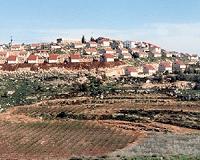| . |  |
. |
Cairo (UPI) Dec 2, 2010 Syrian President Bashar al-Assad has resisted U.S. efforts to pry his regime away from its strategic alliance with Iran, but he seems to be conducting discreet diplomacy with Western Europe and with China. In recent weeks Assad has dispatched his security chiefs to London, Paris and Rome to share intelligence on terrorist groups, according to Intelligence Online, a Paris-based Web site that covers global security affairs. Whether this signals that Damascus, which over the past five years has painstakingly rebuilt its regional influence following its collision with the George W. Bush presidency, is preparing to put some distance between it and Tehran is far from clear. But there has been persistent speculation that differences between Damascus and Tehran over Lebanon and the activities of Hezbollah are emerging. Lebanon has traditionally been firmly within Syria's sphere of influence, but Iran is seen to be driving to expand the Shiite crescent through Iraq and the Persian Gulf to Lebanon, where Shiites form the largest sect. The coming weeks may shed some light on Assad's murky moves, although most of what transpires within the Damascus regime is shrouded in opacity. Still, Assad is determined to maintain Syrian domination in Lebanon, historically part of Greater Syria until the French peeled it off to establish what it intended to be a pro-Western Christian nation in 1943. According to Intelligence Online, Assad sent Gen. Ali Mamlouk, the head of Syria's General Intelligence service, to Rome Oct. 19 to sign an anti-terrorism cooperation agreement. He was reportedly accompanied by Gen. Zohair Hamad, a senior officer of the GI's external branch and a counter-terrorism specialist. On Nov. 16 Mamlouk flew to London. On that trip he was said to have been accompanied by Gen. Thaer al-Omar, deputy director of the GI's counter-terrorism branch, and Gen. Hafez Makhlouf, deputy director of its domestic branch. Mamlouk handed Britain's Secret Intelligence Service, better known as MI6, a list of British militant Islamists who have studied in Damascus. Most were of Pakistani origin. Some had been apprehended trying to sneak into Iraq to join the insurgency there. Intelligence Online reported that Mamlouk offered to hand them over to the British. It's not known whether MI6, which throughout the turbulent 1980s regarded the Syrians as implacable foes because of their links to terrorist groups, accepted the offer. But Mamlouk reportedly emphasized that Damascus was keen to cooperate on counter-terrorism and intelligence matters in exchange for MI6's help to acquire advanced electronic surveillance systems. The British government cloaked Mamlouk's visit in secrecy. From there he flew to Paris Nov. 22 to prepare for a visit by Assad to meet President Nicolas Sarkozy. The French, who governed Syria during the League of Nations Mandate between the world wars, have maintained links with Damascus over the years. But they have also given sanctuary to opponents of the regime, most notably Abdul Halim Khaddam, longtime vice president who defected in June 2005, denouncing the regime and accusing it of assassinating Lebanese statesman Rafik Hariri in February that year. In Paris, Mamlouk reportedly met Claude Gueant, Sarkozy's troubleshooter and chief of staff who handles liaison with Damascus. But while all this was going on, Assad was also apparently taking care of business with a different set of diplomatic partners to the east -- which may turn out to be more important than his dealings in the West. He sent Maj. Gen. Bassam Merhej, identified as director of Assad's security and military bureau, to Beijing Nov. 23. "His real destination was probably Pyongyang, with whom Syria has a nuclear cooperation program," Intelligence Online reported. That program suffered a major setback Sept. 6, 2007, when the Israeli air force destroyed a nuclear reactor being built by North Korea at al-Kibar in eastern Syria on the Euphrates River. Merhej is reported to have replaced Maj. Gen. Mohammed Suleiman, who was assassinated Aug.2, 2008. Merhej was accompanied by Col. Jihad Shehadeh of the army's Corps of Engineers, who has been seconded to the Center for Scientific Study and Research, which is involved in Syria's nuclear program, Intelligence Online said. He was also accompanied by an Iranian, identified as Ali Zadeh, officially the cultural attache at the Iranian Embassy in Damascus but "in reality in charge of logistics for the Iranian nuclear program in Syria."
Share This Article With Planet Earth
Related Links
 US says failed to secure new settlement freeze: Palestinians
US says failed to secure new settlement freeze: PalestiniansRamallah, Palestinian Territories (AFP) Dec 2, 2010 The United States admitted it has failed to win a new Israeli settlement freeze, a Palestinian official said on Thursday, in a potential knockout blow to stalled peace talks. "The US administration has informed us that the Israeli government did not agree to a new settlement freeze," said the official, who spoke on condition of anonymity. "The US administration will continue its efforts." ... read more |
|
| The content herein, unless otherwise known to be public domain, are Copyright 1995-2010 - SpaceDaily. AFP and UPI Wire Stories are copyright Agence France-Presse and United Press International. ESA Portal Reports are copyright European Space Agency. All NASA sourced material is public domain. Additional copyrights may apply in whole or part to other bona fide parties. Advertising does not imply endorsement,agreement or approval of any opinions, statements or information provided by SpaceDaily on any Web page published or hosted by SpaceDaily. Privacy Statement |